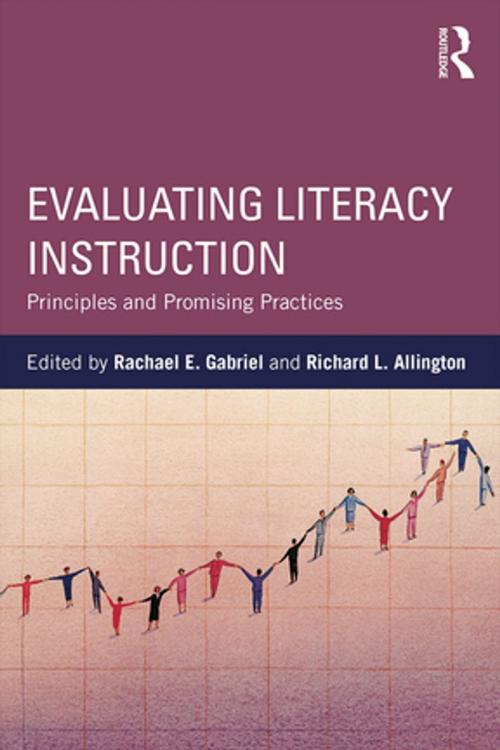Evaluating Literacy Instruction
Principles and Promising Practices
Nonfiction, Reference & Language, Education & Teaching, Educational Theory, Evaluation, Language Arts, Literacy, Educational Reform| Author: | ISBN: | 9781317550495 | |
| Publisher: | Taylor and Francis | Publication: | September 19, 2017 |
| Imprint: | Routledge | Language: | English |
| Author: | |
| ISBN: | 9781317550495 |
| Publisher: | Taylor and Francis |
| Publication: | September 19, 2017 |
| Imprint: | Routledge |
| Language: | English |
This must-read book for all literacy educators illuminates the intersection of research on literacy instruction and teacher evaluation. Since 2009, 46 states have changed or revised policies related to evaluating teachers and school leaders. In order for these new policies to be used to support and develop effective literacy instruction, resources are needed that connect the best of what is known about teaching literacy with current evaluation policies and support practices. A major contribution to meeting this need, the volume brings together a range of perspectives on tools, systems, and policies for the evaluation of teaching, organized into two sections:
• Crafting Systems and Policies for Evaluating Literacy Instruction
• Examples of Alternative Systems/Approaches for Evaluating Literacy Instruction
Across the text, expert scholars in the field emphasize the need for literacy professionals to do more than merely apply generic observation instruments for teacher evaluation, but also to consider how these tools reflect professional values, how elements of effective literacy instruction can be unearthed or included within them, and how teacher evaluation systems and policies can be used to increase students’ opportunities to develop literacy.
This must-read book for all literacy educators illuminates the intersection of research on literacy instruction and teacher evaluation. Since 2009, 46 states have changed or revised policies related to evaluating teachers and school leaders. In order for these new policies to be used to support and develop effective literacy instruction, resources are needed that connect the best of what is known about teaching literacy with current evaluation policies and support practices. A major contribution to meeting this need, the volume brings together a range of perspectives on tools, systems, and policies for the evaluation of teaching, organized into two sections:
• Crafting Systems and Policies for Evaluating Literacy Instruction
• Examples of Alternative Systems/Approaches for Evaluating Literacy Instruction
Across the text, expert scholars in the field emphasize the need for literacy professionals to do more than merely apply generic observation instruments for teacher evaluation, but also to consider how these tools reflect professional values, how elements of effective literacy instruction can be unearthed or included within them, and how teacher evaluation systems and policies can be used to increase students’ opportunities to develop literacy.















